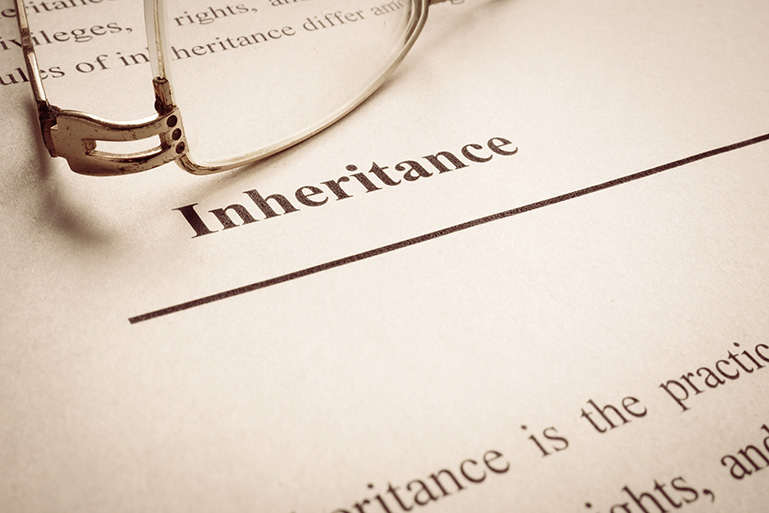Top 3 IHT Planning Tips to Reduce Your Estate’s Tax Bill
06/05/2023 - 8 minutes readIHT Planning Tips has been a frequently asked question by our clients who want to proactively plan to reduce their estate’s IHT liability and minimise the impact of inheritance tax on the wealth that their estate can pass on to their loved ones.
In this article, we discuss our top 3 IHT Planning Tips which will help reduce your estate’s IHT bill.
Give Gifts During the Lifetime
While giving and receiving cash does not incur a tax bill, if you die within seven years of making the transfer then inheritance tax (IHT) rules will come into play. This applies if the value of your estate exceeds £325,000 at death, with amounts over this limit potentially attracting a tax charge payable by your beneficiaries.
The good news is that several exemptions apply outside the seven-year rule that allows people to make financial gifts without worrying about a hefty IHT bill.

But gifting is not just an IHT mitigation issue: for many of the so-called post-war baby boomer generation it is done to help out their adult children and their families, so the donor gets the benefit of seeing their gift make their loved ones financially secure. This is particularly relevant amid a cost of living crisis.
There are many reasons you may want to give a cash gift to your loved ones. It could be to help pay for a wedding, a new car, or university fees, or to help give the younger generation a leg-up onto the property ladder. Others want to gift cash to reduce the value of their estate for inheritance tax (IHT) purposes, with the tax on cash gifts often being far less than the 40% IHT charge that many are facing which makes this a favourite on our IHT Planning Tips.
We discuss this in further detail here.
Many parents want to make large gifts during their lifetime but are afraid that they might run out of money before they die, particularly if they end up having to pay for care. Cashflow planning can be used to calculate how much access will be required to ensure that there is sufficient money available to pay for care if required, and by careful use of specialist trusts, sufficient access can be maintained whilst minimising the inheritance tax liability.
There can be some other tax consequences to consider, however, and as a generally complex area, trusts are best arranged with estate planners.

Using a Pension Pot
Using a pension pot to avoid Inheritance Tax is very popular on our IHT Planning Tips allowing people to pass on their wealth to their loved ones as pension pots are not included in the value of the owner’s estate for inheritance tax purposes.
Defined contribution pension pots are not legally part of an estate and are therefore exempt from IHT. If the pension holder dies at age 75 or over no IHT will be due but income tax will be levied on the nominated recipient of the pension at their normal income tax rate as the funds are withdrawn.
If death is before age 75 no income tax or inheritance tax will be payable. Until recently this was limited by the lifetime allowance (LTA), which meant that large pots over £1.07m could attract an excess tax charge of up to 55%.
The LTA charge, however, was cancelled at the last Budget, leaving no limit on how much can be saved tax-efficiently into a defined contribution pension pot. The LTA has become a bit of a political football and it remains to be seen whether its removal lasts beyond the next general election.
Either way, those who have planned their estates carefully might use up other assets before their pension, on the basis that less IHT is likely to be due on the estate. Most occupational defined contribution pension schemes ask for an ‘expression of wish’ or ‘nomination of beneficiaries’ indicating who receives your pension pot on death – so it is important to make sure such details are up to date on old pension pots.
More than one person can be named as a beneficiary so the pot can be split. A pension could be the second largest asset after the home, and sometimes the largest asset.
We discuss this in further detail here.
Family Home & Equity Release
Finally, no 3 on our IHT Planning Tips is Equity release, where you free up cash from the value of your home by taking out a mortgage that lasts until you die or move into care, was once only considered suitable for those with debts or little pension income but many older people who have benefited from the value of their homes increase dramatically in their lifetime are now using equity release to reduce inheritance tax as well to help their children & grandchildren by gifting them cash which they can use as a deposit to get on the housing ladder, help with university fees, pay for wedding costs etc.
Whilst equity release can be taken out from the age of 55, this may be too soon to start tax planning. Those who want to give away some of their estate to avoid care home fees should also be careful because councils can deny funding to anyone they believe has deliberately given away their money.
We discuss this in further detail here.
How can MCL Accountants help?
Contact MCL Accountants on 01702 593 029 if you would like to know more about the IHT Planning Tips or if you need any assistance with the preparation and submission of your business accounts or self-assessment tax returns to HMRC.
- ABOUT
- REQUEST A QUOTE
Ishan provides financial management, taxation and transactional advice to business entities of all sizes. His expert areas include statutory compliance, business taxation, personal tax & transactional processing and systems. Industry sectors include professional services, retail, hospitality and entertaining & media and advertising services.

0 Comments